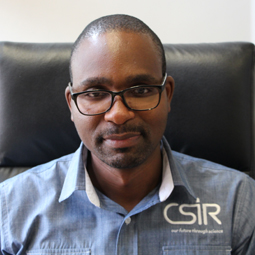South Africa wins International Student Cluster Competition in Germany
A team of six South African undergraduate students has taken first prize against 13 teams at the International Supercomputing Conference (ISC) in Frankfurt, Germany. The spectacular success follows four days of working on a selection of tests and applications to optimise and run their computer cluster to demonstrate the performance of their chosen design. The competition took place from 16 to 19 June 2019.
A team of six South African undergraduate students has taken first prize against 13 teams at the International Supercomputing Conference (ISC) in Frankfurt, Germany. The spectacular success follows four days of working on a selection of tests and applications to optimise and run their computer cluster to demonstrate the performance of their chosen design. The competition took place from 16 to 19 June 2019.
The team of four University of Cape Town students and two University of the Witwatersrand students entered the very rigorous and fiercely contested competition following their success at the national round, where they beat nine other South African teams. The team was one of the few to be made up of 50% men and 50% women. Stefan Schröder, Dillon Heald, Jehan Singh, Clara Stassen, Anita de Mello Koch and Kaamilah Desai, under the supervision of team advisors and computer engineers David Macleod and Matthew Cawood of the CSIR’s Centre for High Performance Computing (CHPC), took on 102 members of teams from the United Kingdom, United States of America, China, Taiwan, Spain, Switzerland, Estonia and Singapore. The team took first place with the highest overall score for all the benchmarks they were given.
Competition sponsors
The team received a number of sponsorships for this competition including hardware, software and training. The total value of the South African team’s cluster was about R6 million and comprised sponsorships from Dell EMC, Intel, Nvidia and Mellanox.
The CHPC holds the national round annually and sends different teams of undergraduate computer science and computer engineering students to participate in the international competition. Team South Africa has won the competition four times, in 2013, 2014, 2016 and 2019, and has taken second place twice, in 2015 and 2017. The team came third in 2018.
It all began in 2012, when a team of CHPC staff attended ISC in Germany and realised the potential of the Student Cluster Competition as an opportunity to create awareness for high-performance computing as a career and to develop the high-performance computing pipeline in the country. The team started planning a national competition that would culminate in a team of six who would represent South Africa on the international stage.
Getting started: Selecting teams for participation in the South African round
The team selection phase coincides with the CHPC’s Winter School. It is designed to impart critical knowledge for building a cluster, which includes using Linux systems, the basic software stack of a cluster, and considerations which should be taken into account when choosing hardware. Universities around the country are invited to send teams of four and the CSIR ensures that teams are entered from as many universities as possible, so that students from all backgrounds are given a chance to learn and compete. Team selection concludes with an assignment that requires each team to build a prototype cluster in the cloud. The teams selected from this round proceed to the national round of the Student Cluster Competition.
Getting to Team South Africa: Competing nationally
In the national CHPC Student Cluster Competition, participants build small high-performance clusters out of hardware provided by the CHPC and its industrial partners. The contest takes place at the annual CHPC National Conference. The participants are given a selection of applications to optimise and run on their cluster to demonstrate the performance of their design.
Each team is assigned a budget and a parts list from one of the CHPC's industry partners. With this budget and parts list, the team must design a cluster, taking into consideration the set of applications that will be used to benchmark the cluster. Once the cluster's design is finalised, the hardware specification is submitted to the CHPC's partners for manufacturing.
The hardware, as specified in the cluster design, is delivered to the CHPC National Conference. There, the teams unpack their equipment, construct their cluster, install the software stack and perform benchmarks. The teams are judged on a combination of the performance of the applications and the design of the cluster.
South African team representatives go through extensive training after winning the national round, including travelling to the Texas Advanced Computing Centre in the United States of America, where they receive training from experienced administrators of supercomputing clusters on the design and administration of supercomputers.
Winning formula
According to the team advisor and manager of the CHPC’s Advanced Computer Engineering Lab, David Macleod, the South African team’s winning formula is to have dedicated students and sponsors. “Our sponsors are excellent and allowed the team to choose equipment without restriction or compromise. In turn the students put in a lot of time and effort before the competition and arrived at the competition well prepared,” he says.
“It really is excellent national progress. We have demonstrated consistently that talent and skills abound in our country. These teams come from different universities and provinces – showing that this is now national DNA,” says Dr Happy Sithole, Acting Director of the CHPC and Manager of the National Cyberinfrastructure System (NICIS).
The CHPC is an initiative of the Department of Higher Education, Science and Technology and is one of the three pillars of South Africa’s cyberinfrastructure system. It is supported by the South African National Research Network for transportation of data and the Data Intensive Research Initiative of South Africa for the management and curation of data. NICIS is managed by the CSIR.
For more information:
Ms Nox Moyake: Communications Practitioner
Cell: 072 02 66762
Email: nmoyake@csir.co.za
OR
David Mandaha: CSIR Media Relations Manager
Tel: 012 841 3654
Mobile: 072 126 8910
Email: dmandaha@csir.co.za


